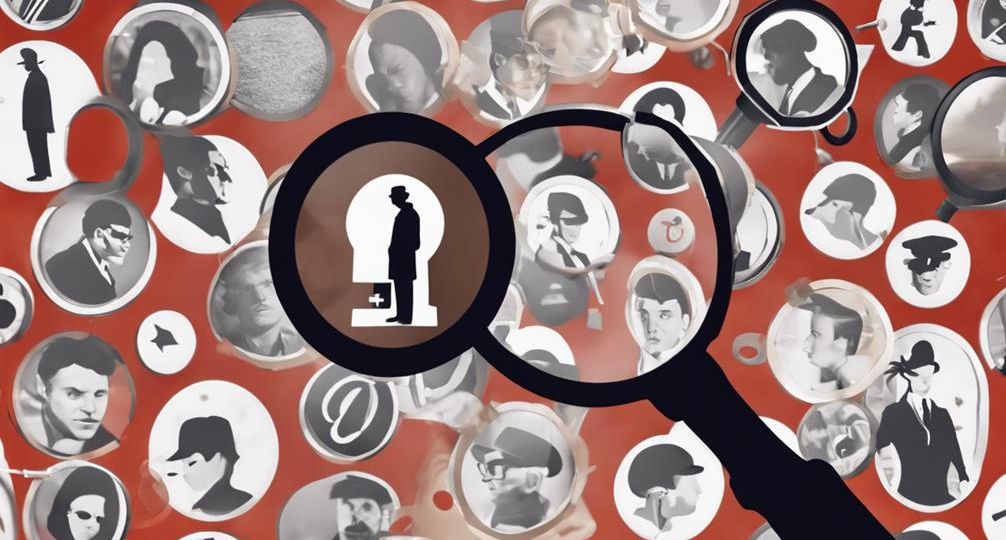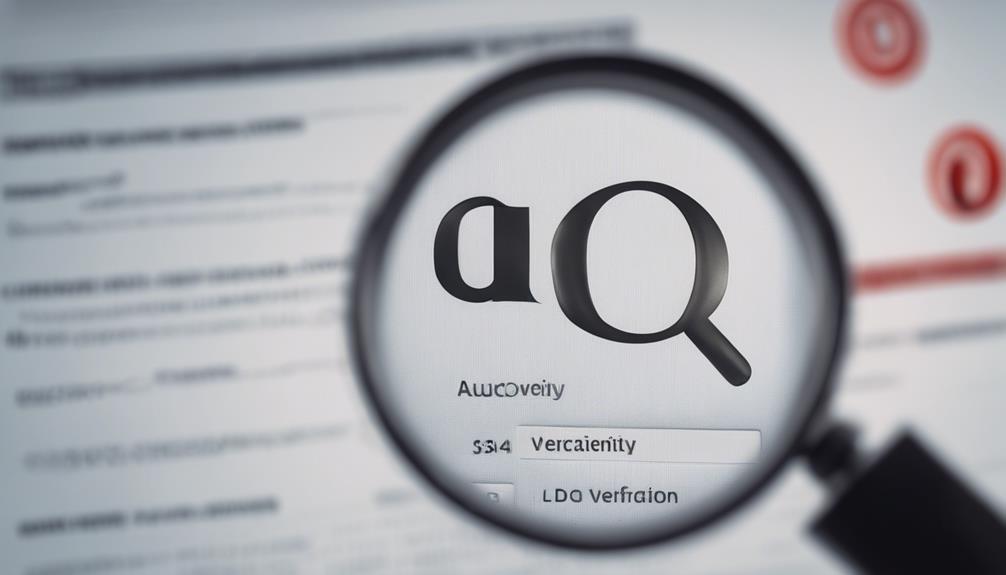
Are there fake profiles on Quora?
Isn’t it peculiar how some Quora profiles seem too good to be true? You’ve probably come across accounts that make you question the authenticity of their creators. Without a doubt, the digital world provides a fertile ground for the existence of pseudo profiles, and Quora is no exception.
But what compels individuals to create these fictitious identities? What are the implications, and how do you spot them? Let’s dissect this intriguing aspect of our digital interactions and explore some more.
Key Takeaways
- Yes, fake profiles exist on Quora, often created for trolling, impersonation, or spreading misinformation.
- These profiles can harm Quora’s credibility, affect user engagement, and degrade content quality.
- Detection strategies include AI and machine learning algorithms, social media comparison, and user vigilance.
- Quora combats fake profiles through verification processes, suspicious activity flagging, and encouraging user reports.
Understanding Fake Profiles

One must understand that a fake profile on Quora is typically created with the intent to deceive or mislead other users. You’d ask, ‘why?’ Well, motives vary from trolling to impersonation, misinformation dissemination, or even commercial promotion. It’s important for you, as a user, to discern these profiles to navigate the platform effectively and securely.
Profile Verification and Authenticity Measures are pivotal in this regard. Quora has established protocols and algorithms to verify user profiles and keep the community’s integrity intact. However, these measures aren’t foolproof and it’s where your vigilance comes into play. You should always check for profile completeness, user activity, and quality of answers for authenticity. A profile with a generic name, scant information, and low-quality answers should raise a red flag.
In the era of digital innovation, the fight against fake profiles is evolving. Artificial intelligence and machine learning are emerging as powerful tools for authenticity verification. So, while Quora continues its efforts to keep the platform genuine, your discernment and awareness remain crucial. Remember, the digital world is as real as it gets, and so should be its users.
The Prevalence on Quora
You’re likely wondering about the extent of this issue on Quora.
Let’s consider how to identify these counterfeit profiles, understand the impacts they’ve on the platform, and discuss strategies to detect them.
This knowledge will equip you to better navigate the platform and contribute to a more authentic Quora community.
Identifying Fake Quora Profiles
It’s alarming to note that a significant number of fake profiles have infiltrated Quora, an issue that’s been increasingly prevalent in recent years. Identifying these profiles often involves examining profile authenticity and Quora verification.
Here’s a concise table highlighting key signs to look out for:
| Profile Authenticity | Quora Verification |
|---|---|
| Inconsistent activity | Unverified Email |
| Unrealistic bio | No Linked Accounts |
| Stock photo usage | Absence of Upvotes |
| Sparse or no answers | Irregular Followings |
Being equipped with this knowledge, you’re now empowered to differentiate between genuine and fake profiles. Remember, it’s paramount to scrutinize these aspects before engaging with any Quora content so as to maintain a healthy, informative and innovative platform.
Impact of Fake Profiles
The prevalence of fake profiles on Quora can drastically distort the platform’s credibility and authenticity, potentially dissuading genuine users from contributing valuable insights. The Fake Profile Consequences are manifold, with a significant impact on the platform’s integrity, user engagement, and content quality.
- The platform’s reputation suffers, hampering Quora’s growth and user acquisition.
- User engagement decreases due to mistrust, leading to a reduction in valuable content creation and exchange.
- The quality of content deteriorates, undermining the Profile Authenticity Importance.
Therefore, you see, the consequences aren’t trivial. They’re a stark reminder of the need for constant vigilance in maintaining the platform’s integrity, fostering an environment that encourages genuine engagement and the sharing of innovative ideas.
Strategies for Fake Detection
Understanding the gravity of fake profiles on Quora, it’s essential to explore effective strategies for their detection. One innovative strategy is Artificial Intelligence Detection, which uses machine learning algorithms to identify unusual patterns of behavior that indicate a fake profile. These algorithms can analyze profile data, such as the frequency and timing of posts, to detect anomalies.
In addition, Social Media Comparisons can be a valuable tool. By comparing Quora profiles to accounts on other platforms, you can identify inconsistencies. For instance, a Quora user with a high level of activity but no presence on other social media platforms could raise a red flag.
Keep in mind, these strategies require your vigilance and critical thinking. Stay ahead of the game in this ever-evolving digital landscape.
Behind the Creation Process
Often, individuals create fake profiles on Quora with various motives, a process that involves strategic planning and careful execution. They exploit the site’s profile verification methods and use clever tactics to dodge detection. This requires a deeper understanding of the platform’s operations and its linkage with social media networks.
To create a convincing fake profile, you’d need to:
- Craft an authentic-looking bio, complete with believable credentials and interests.
- Regularly post and interact, mimicking the activities of a genuine user.
- Link the profile to other social media accounts, lending it an air of legitimacy.
These steps are just the tip of the iceberg. The creation process becomes far more complex when you’re dealing with advanced fake profile operations which employ cutting-edge technology and AI.
In essence, the creation of fake profiles on Quora isn’t a simple task. It’s a calculated and intricate process that’s designed to exploit loopholes in the platform’s defenses. As Quora continues to evolve, it’s crucial for its community to stay vigilant and innovative in their approach to identify and counter these fake profiles.
Motives for Fake Profiles

While it’s clear that creating a fake profile on Quora involves a complex process, you might wonder why anyone would go to such lengths. The motives behind this digital deception often vary, but they typically revolve around two main themes: gaining an advantage or engaging in identity theft.
To better understand, let’s delve into the primary motives:
| Motive | Purpose | Consequence |
|---|---|---|
| Enhance Reputation | Gain respect, influence, or followers | Unfair competition, misinformation |
| Identity Theft | Impersonate another user to gain access to private information | Breach of privacy, potential for fraud |
| Trolling | Derail discussions, provoke reactions | Toxic environment, decreased user engagement |
| Market Research | Gather data on user preferences, habits | Privacy intrusion, unsolicited advertising |
| Spamming | Promote products, services, or websites | User annoyance, reduced platform credibility |
As you can see, the motives are diverse. Each comes with its adverse impacts, affecting not only the individual users but also the overall community. By understanding these motives, you are more equipped to spot digital deception and protect against identity theft. These are key skills in our rapidly evolving digital landscape.
Detecting a Fake Profile
Now, let’s turn your attention towards detecting a fake profile on Quora.
You’ll want to look for inconsistent information, use of stock photos, and peculiar profile activity patterns.
Mastering these signs will enhance your ability to spot and avoid fake profiles.
Identifying Inconsistent Information
To detect a fake profile on Quora, you should start by scrutinizing any inconsistent information presented by the user. Information validation is a key step in determining profile authenticity. Here’s a quick guide to help you:
- Look for discrepancies between the user’s profile and their content. For example, if a user claims to be an expert in a field, but their answers don’t display the expected level of knowledge, be suspicious.
- Check the user’s activity patterns. It’s a red flag if they’re answering questions in rapid succession without proper depth.
- Notice any inconsistencies in language use. A profile claimed to be from an English-first-language country but uses poor grammar can be a telltale sign.
Recognizing Stock Photo Use
After scrutinizing any inconsistencies in a user’s profile, it’s equally crucial to keep an eye on their profile picture – fake profiles often utilize stock photos. This is where profile picture analysis comes in. A simple reverse image search can reveal stock photo origins, exposing the illusory nature of these profiles.
Look for professional-grade quality, watermarks, or images that appear on multiple websites. They’re telltale signs of stock photo use. It’s also worth noting that some fraudsters will alter these images slightly to dodge detection, so be vigilant. With the rise of deepfakes, recognition technology has to be innovative to stay ahead. By incorporating these analytical techniques into your routine, you’ll become adept at spotting fake profiles.
Analyzing Profile Activity Patterns
In detecting a fake profile, observing the user’s activity patterns offers a wealth of information. You can delve into the user’s past actions and interactions to gauge their authenticity. Here’s where Profile Verification and User Authenticity become crucial.
- Look for patterns of engagement. Authentic users typically have a consistent interaction pattern with the community.
- Monitor their post frequency. Fake profiles often have an unbalanced ratio of posts to engagements.
- Examine their response rate. Real users usually take time to craft thoughtful answers.
Strategies to Avoid Fake Profiles

While Quora is working hard to mitigate the issue of fake profiles, you too can play a significant role by employing a few key strategies to avoid falling prey to these impostors. The first strategy is to leverage Quora’s Profile Verification tool. This tool allows users to confirm the authenticity of a profile, making it harder for fake profiles to gain traction.
Next, consider the content posted by the profile. Genuine users typically have a history of substantial and insightful contributions to the platform.
Another crucial strategy is to ensure you’re mindful of Authenticity Measures. Quora implements these measures to ensure that every user on the platform is real and accountable. These measures include requiring users to register with a valid email address and phone number.

